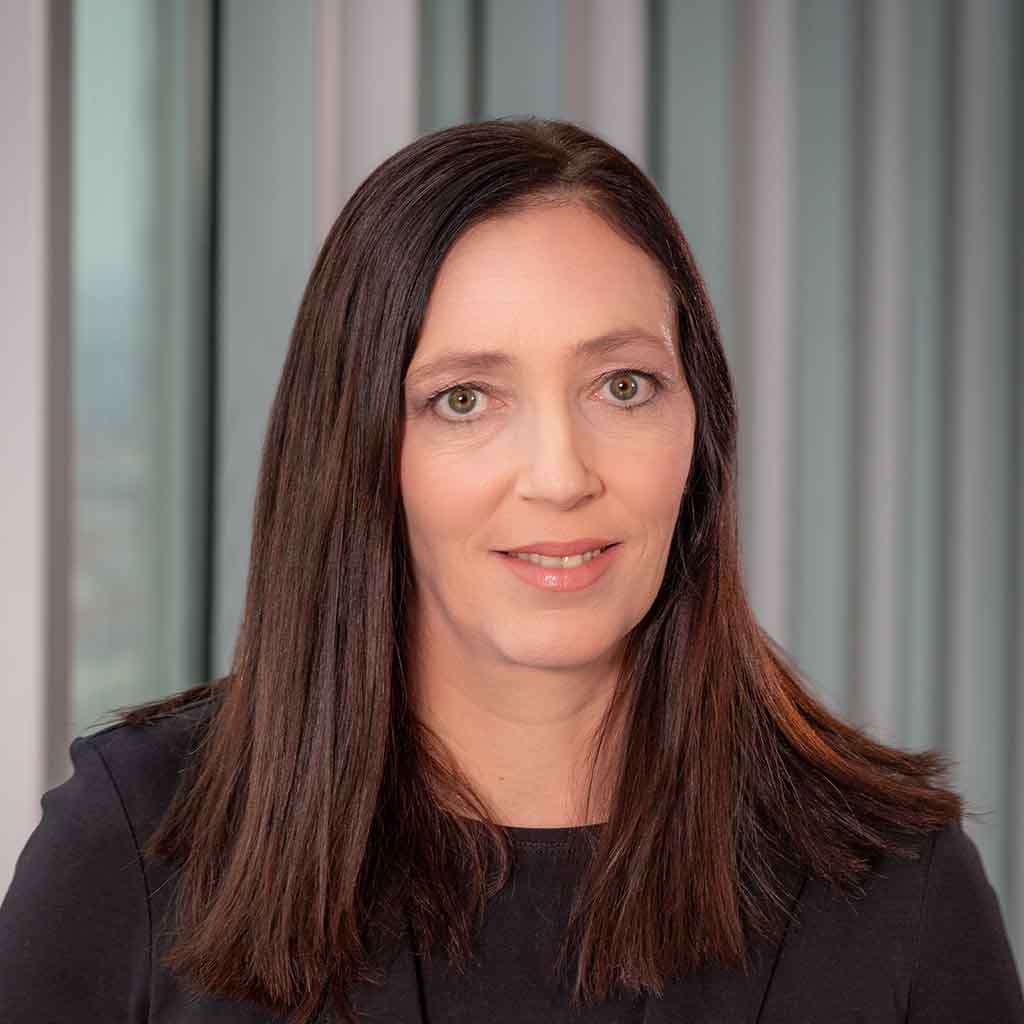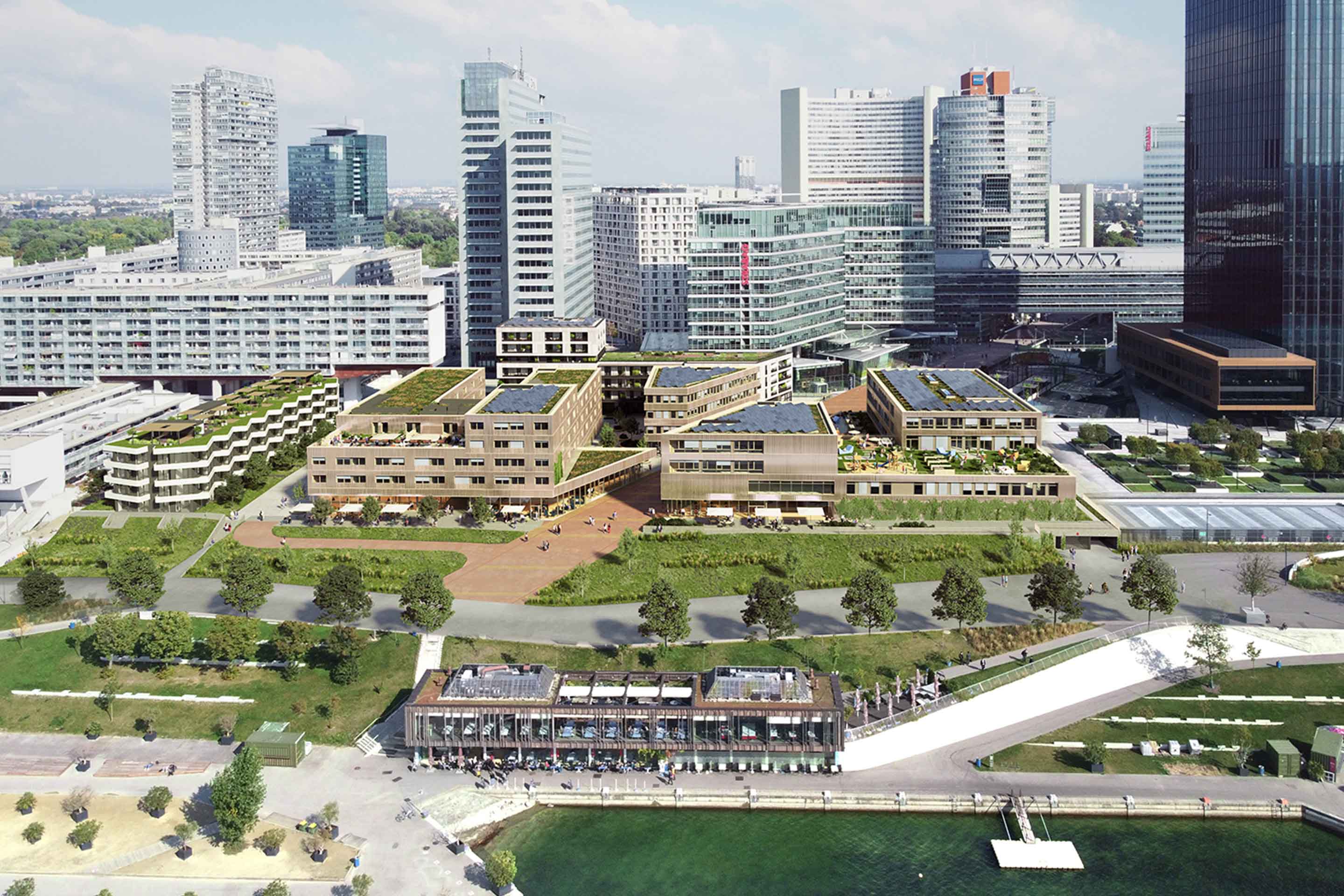News:Fighting urban overheating with real estate- part 2

by Martina Magnet

In recent years, many cities have been struggling with the problem of ever-increasing heat. Climate change, rising CO2 emissions and increasing urbanisation are often cited as triggers. We have already listed the measures we can take as real estate developers to counteract these negative effects in Part 1 of this article. Intelligent and forward-looking planning helps to develop neighbourhoods and real estate in such a way that they are not only liveable for the residents, but also have a positive influence on the urban microclimate. In the following section of this article, we will shed light on which other measures play a significant role in the planning of real estate in order to minimise urban overheating.
Improved thermal insulation and energy efficiency:
Good thermal insulation and energy efficiency of buildings play a crucial role in reducing urban overheating. By using high-quality building materials, buildings can minimise the absorption and storage of heat. This means that less energy has to be used for heating and cooling. Sustainable building materials that have already been successfully used in our projects include natural sheep's wool, which is particularly efficient as interior insulation and at the same time still absorbs and neutralises pollutants from the interior. Thanks to the use of recycled concrete in the H3ö office project in Hanover, around 85 per cent of the demolition material from the old buildings on the site can be reprocessed. The resulting recycled concrete is many times more climate-friendly than its CO2-intensive new production.
From 2026, the modern Upper One office building will replace the Atrium International in Warsaw. The SRE project team already placed great emphasis on the comprehensive recycling of old materials during the planning phase. In total, 70 per cent of the materials from the demolished office building can be recycled or reused, including windows that have already been donated to rebuild homes in Ukraine.

Upper One
Warsaw · Under construction
Type
- Office
- Hotel
- Restaurant
Efficient energy supply and use:
The use of efficient energy supply systems goes hand in hand with the use of high-quality building and insulation materials. By integrating renewable energy systems such as solar energy or geothermal energy, real estate can meet its own energy needs and reduce dependence on fossil fuels. Energy-efficient buildings can reduce energy consumption and heat emission, which helps to reduce urban heat.
Since 2008, SRE has placed special emphasis on resource-saving energy systems and provides energy supply for both commercial and residential buildings by means of geothermal energy and photovoltaics. One of the best examples of a sustainable and modern energy concept is the H3ö in Hanover. Each building in the office trio implements sustainability in its own way: Cleo is the green one, Mona the monolithic one, Woody the wood hybrid. What unites them are high CO2 savings and regenerative energy concepts. Here, an ice storage system ensures an almost emission-free heat and cold supply. Fossil fuels for heating and cooling can be dispensed with entirely in this project.

H3ö Bürocampus
Hannover · Planning
Type
- Office
- Green building
Water management and rainwater harvesting:
The planning of sustainable neighbourhoods and real estate should also take into account the efficient management of water resources. Our experts also consider rainwater retention systems, decentralised water treatment and use, and measures to reduce surface sealing in every project. By integrating rainwater harvesting systems and creating green spaces with efficient irrigation, the water cycle can be supported, and the microclimate positively influenced. The evaporation of water has a cooling effect and can help to lower the ambient temperature.
A good example is the H3ö-Campus in Hanover. As early as the planning stage, the office trio integrated an intelligent system for automatic irrigation of the green roof areas. In this way, rainwater can be used for irrigation at low cost. The SEED in Frankfurt is also a showcase project in terms of efficiency and sustainability. In addition to the use of green façades, geothermal energy, photovoltaics and recycled materials, large-scale retention areas and sponge beds ensure controlled runoff and storage of rainwater. The stored water can be used for watering the green areas and façades and also promotes natural evaporation.

SEED
Frankfurt am Main · Planning
Type
- Office
- Green building
Sustainable mobility concept:
When developing real estate, reducing traffic congestion in neighbourhoods should also be an important goal. Good connections to public transport and a good infrastructure for alternative means of transport such as bicycles and pedestrians reduce motorised traffic and not only reduce CO2 emissions, but also the heat generated by exhaust emissions. The mobility concept at DC Waterline relies entirely on public transport. The good connection to the U-Bahn and bus lines is intended to reduce individual traffic. There are also sufficient bicycle parking spaces and e-charging stations. The car-free environment on the Danube plateau reduces the heat generated by exhaust emissions. Real estate projects that also rely on a digital parking management system are the H3ö in Hanover and the Borx in Hamburg. The intelligent system ensures that a better utilisation of the parking spaces is achieved. This not only saves space, but also valuable resources and costs.

BORX
Hamburg · In Realisierung
Type
- Office
- Restaurant
We at STRABAG Real Estate are aware of our responsibility not only to create liveable and functional working and living spaces. We know that our real estate also makes a significant contribution to reducing overheating in cities and we work every day to improve existing systems and develop new solutions.
Contact

